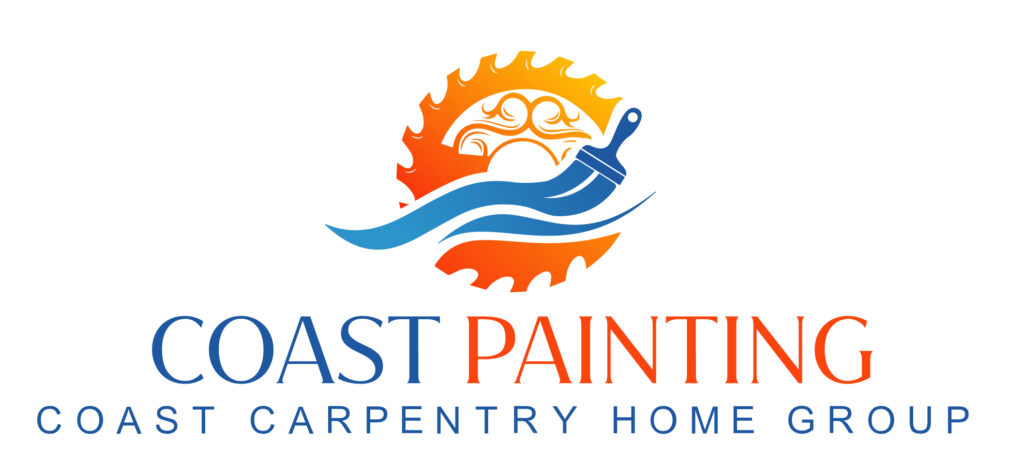Living in coastal areas like Cape Cod has many benefits, such as beautiful views and fresh ocean air. However, salt in the air can wreak havoc on your home’s siding. Over time, salt air can cause the siding to corrode, weaken, and look worn out. This makes it essential to choose the suitable materials and perform regular maintenance.
Understanding the Effects of Salt Air on Siding
Salt air can be harsh on your home’s siding. When salt particles in the air settle on your siding, they attract moisture. Moisture and salt combined can cause corrosion over time. This can weaken the material and make it look old and tired.
Corrosion: Metal siding, in particular, suffers from rust and corrosion due to salt air. The salt provokes a chemical reaction that eats away at the metal. This not only affects the appearance but also weakens the structural integrity of the siding.
Fading and Discoloration: Salt particles can also cause fading and discoloration, especially in darker siding colors. Constant exposure to salt air can make your siding look unevenly colored and unattractive.
Warping and Cracking: Vinyl and wood siding can warp or crack when exposed to salt air. The salt can dry out the materials, making them brittle and prone to breaking. This can lead to gaps that allow moisture into your home, causing further damage.
Choosing the Right Siding Material for Coastal Homes
Choosing a suitable siding material is crucial for homes in coastal areas. Some materials handle salt air better than others, so picking a material that will last and protect your home is vital.
Vinyl Siding: Vinyl is a popular choice for coastal homes. It resists moisture and does not corrode. However, it can still warp under extreme conditions, so choose high-quality vinyl designed for rugged environments.
Fiber Cement Siding: This material is excellent for coastal areas. Fiber cement is resistant to salt air and moisture. It won’t rot or warp easily and can last long with proper care. It’s also fire-resistant, making it a safe choice.
Aluminum Siding: Aluminum is durable and resists rust when appropriately coated. Choose aluminum siding with a robust protective finish to prevent corrosion. This type of siding is lightweight and can withstand salty conditions.
Composite Siding: Composite siding is made from a blend of materials, making it solid and durable. It’s engineered to resist rust, warping, and cracking. Composite siding can be a bit pricier but provides excellent protection.
Treated Wood Siding: If you prefer the look of wood, choose treated wood siding. It’s treated to resist moisture and pests. However, treated wood requires regular maintenance to keep it in good shape.
Choosing the suitable siding material can significantly affect how well your home withstands salt air. Consider these options to keep your home protected and looking its best.
Regular Maintenance Tips to Protect Siding from Salt Air
Regular maintenance is vital in protecting siding from salt air damage. Here are some valuable tips to keep your siding in top condition:
Wash Your Siding: Regularly use fresh water to remove salt deposits. Use a garden hose or a pressure washer in a gentle setting. Washing your siding prevents salt from accumulating and causing damage.
Inspect for Damage: Check your siding for signs of wear and tear every few months. Look for cracks, warping, and discoloration. Early detection allows you to fix minor issues before they become big problems.
Reapply Protective Coatings: If your siding has a protective finish, reapply it as needed. For materials like aluminum or treated wood, periodic recoating helps maintain their resistance to salt air.
Trim Nearby Vegetation: Keep bushes and trees trimmed away from your siding. This prevents moisture buildup and reduces the risk of plant material rubbing and damaging the surface.
Clean Gutters and Downspouts: Ensure your gutters and downspouts are clear of debris to prevent water overflow, which can damage your siding. Clean gutters also keep your siding dry and less prone to salt damage.
Following these maintenance tips can help extend the life of your siding and keep it looking its best despite the harsh coastal conditions.
Repairing and Replacing Damaged Siding
Even with regular maintenance, siding may eventually suffer from salt air damage. Knowing how to repair or replace damaged sections is essential for keeping your home in good shape.
Patch Small Cracks and Holes: Use a suitable patching material for minor damage, such as small cracks or holes. Vinyl siding repair kits, wood filler, or metal patches can cover the damage and prevent it from worsening.
Replace Damaged Sections: If more extensive sections of your siding are damaged, it may be necessary to replace the affected panels. Match the new siding as closely as possible to the existing material to maintain a uniform appearance.
Hire a Professional: If the damage is extensive or you are unsure how to proceed, hiring a professional can be the best option. They can accurately assess the damage and recommend the most effective repair or replacement methods.
Upgrade to More Durable Materials: If your siding is continually getting damaged, consider upgrading to more durable materials. Fiber cement and composite siding are better suited for coastal environments and can reduce future repair needs.
Keeping an eye on your siding and addressing damage promptly ensures your home remains protected from the effects of salt air.
Conclusion
Protecting your home from the damaging effects of salt air is essential for maintaining its beauty and structural integrity. Understanding how salt air affects your siding helps you choose the best materials and follow effective maintenance practices. Regularly inspecting and cleaning your siding can prevent significant salt air damage and extend the life of your home’s exterior.
When damage occurs, timely repairs and, if necessary, replacing damaged sections are crucial to keeping your home safe and attractive. Upgrading to more durable materials can also be a wise investment for long-term protection against harsh coastal conditions.
For expert assistance in maintaining your siding and protecting your home from salt air exposure, contact Coast Carpentry Construction. Our siding contractors specialize in providing high-quality home improvement services for Cape Cod homeowners. Reach out to us today to ensure your home stays in top condition.







